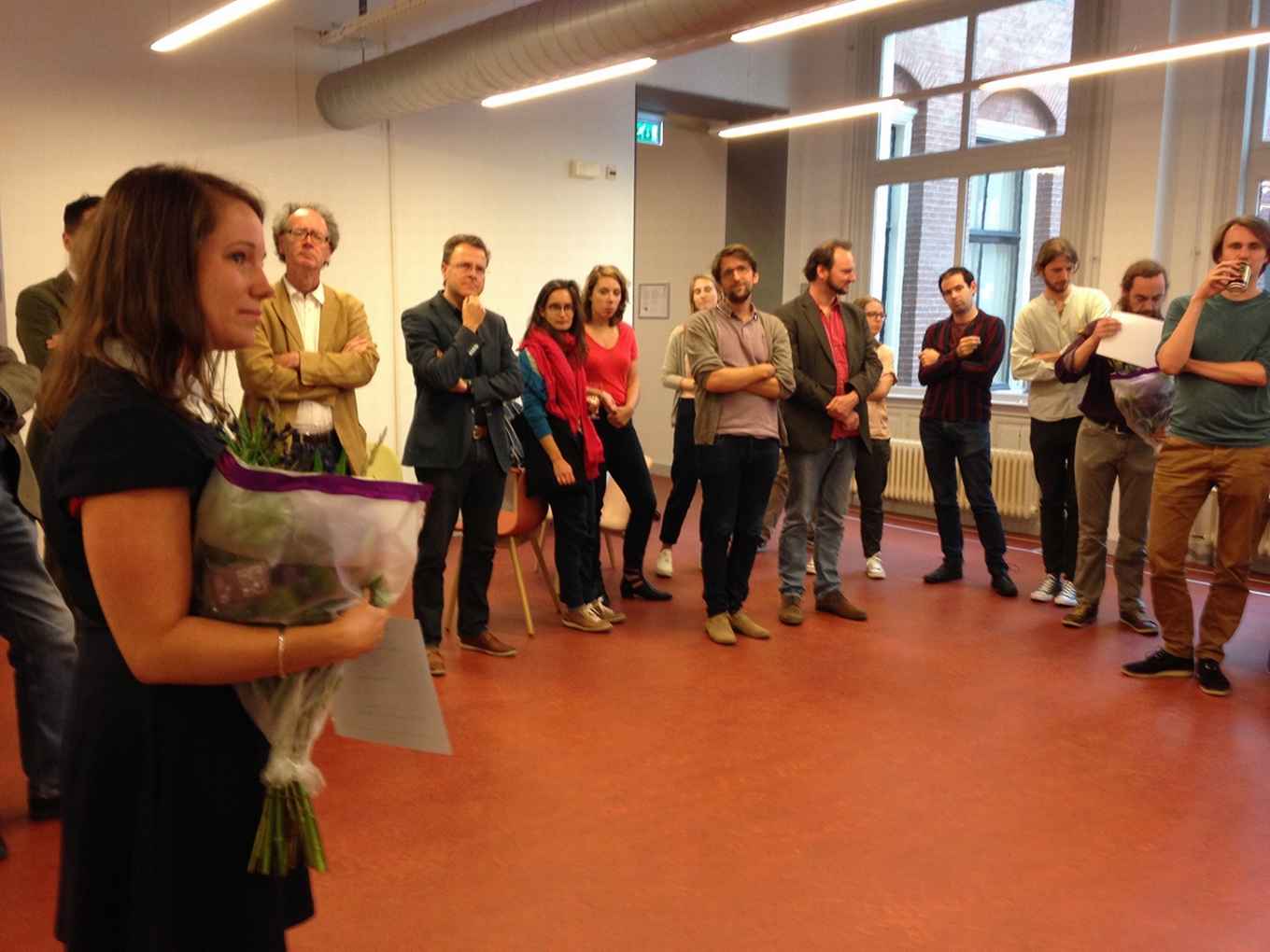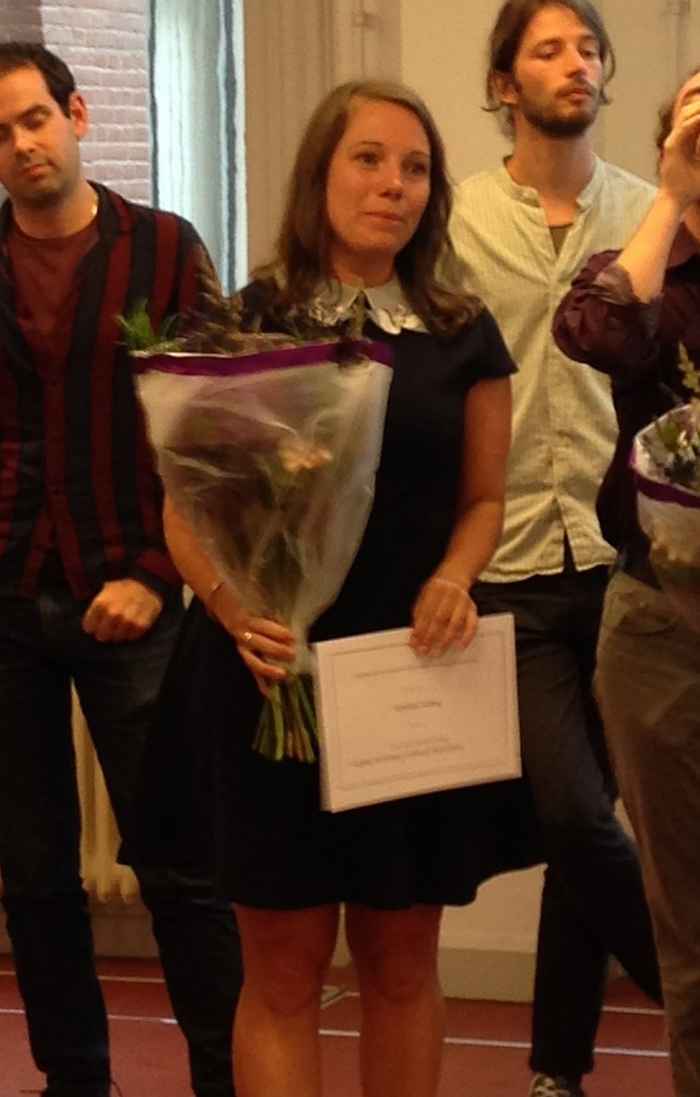Frans Camphuijsen and Rianne Hermans co-winners of ASH dissertation award
7 July 2017

Scripting Justice
The award was presented to Frans Camphuijsen for his PhD dissertation Scripting Justice. Legal Practice and Communication in the late Medieval law Courts of Utrecht, York and Paris, which he carried out from 2011 until 2016 as a so-called docent promovendus (lecturer PhD candidate), under the supervision of Professor Guy Geltner.

With his Scripting Justice project, Frans Camphuijsen has achieved a rare feat. His work is brilliantly comparative in nature and based on extensive research in three different archives in three different countries (and thus largely in three different modern linguistic and historiographical contexts). It reconstructs how courts began to find their way as professional and political agents, using performative and textual techniques to assert their role and shape their identities in an increasingly competitive urban field. Deeply steeped in challenging primary sources and engaging a variety of linguistic and anthropological theories, this innovative dissertation is a boon to legal anthropologists and urban historians, as has already been recognised by his dissertation committee, and is written in disarmingly clear English prose.
Latin Cults through Roman Eyes
The award was presented to Rianne Hermans for her PhD dissertation Latin Cults through Roman Eyes. Myth, Memory and Cult Practice in the Alban Hills, which she carried out from 2011 until 2016 under the supervision of Professor Emily Hemelrijk and Professor Marijke Gnade.

In Latin Cults through Roman Eyes, Rianne Hermans has examined three Latin sanctuaries located in the vicinity of Rome, namely those of Diana Nemorensis, Juno Sospita, and Jupiter Latiaris. Using them as her prism, she considers the role that the Latin past played in Roman memory, experience, and practice in Rome during the later republic and early imperial era. While other researchers have restricted their focus to the earliest history of the cults themselves, Rianne opted for a boldly innovative approach and convincingly positioned her study within the framework of memory studies. Delving into an enormous body of diverse source materials ranging from myths, literary texts, inscriptions, coins, and archeological evidence, she has produced a sharp analysis in impressive English that is innovative on a theoretical level. Its relevance greatly exceeding that of this case study per se, this dissertation is of considerable importance for international researchers engaged with the relationship between religion, memory, and identity in Roman society more generally.
About the award
The ASH dissertation award is presented annually to the author of the best doctoral dissertation of the Amsterdam School for Historical Studies. The award is accompanied by a prize of € 500.